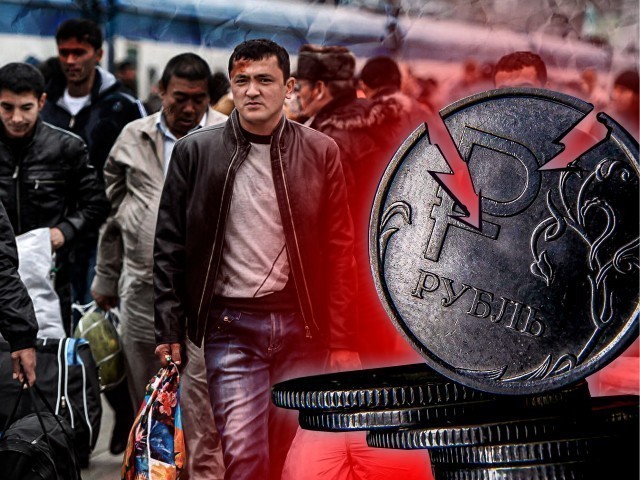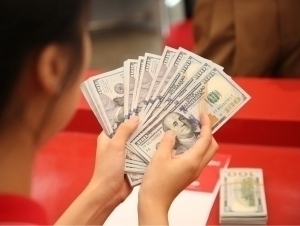The ruble is “falling.” Will Uzbek migrants return?
Local
−
14 August 2023 28831 2 minutes
Amidst the backdrop of the "collapse" of the Russian ruble and the surge of the dollar, Uzbek migrants in the country have seen their income diminish by about a third. This was reported by "BFM.ru."
This situation has arisen as Uzbek migrants convert the rubles they earn in the country into dollars and remit them back home. Consequently, due to the depreciation of the ruble and the ascent of the dollar, their earnings undergo a significant reduction during the currency exchange, thereby creating financial hardships.
Currently, the population of Uzbek citizens residing in Russia has reached 3 million. Out of the total sum of 17.5 billion dollars that flowed into Uzbekistan from global labor migrants, Russia accounts for 14.5 billion dollars. The remaining contributions come from the USA, Japan, Canada, South Korea, and Kazakhstan.
It has been reported that despite the ruble's devaluation, migrants are not yet returning to their homeland. Such fluctuations have been observed in the past, and migrants have managed to adapt to these circumstances.
Abdukarim Otajonov, a member of the All-Russia Uzbek Congress Audit Commission, commented, "People will not be leaving Russia due to the ruble's collapse. Instead, they might reduce their expenditures, such as purchasing fewer cattle or scaling down a wedding from 500 guests to 300. People only consider leaving when circumstances become truly dire. Previously, they used to buy property in the Tashkent region using the money earned in Moscow. Presently, they are faced with a 4 million soums monthly mortgage payment. How can anyone manage such a mortgage when the country offers a salary of 2 million or 2.5 million?"
Several other business figures also advocate for the perspective of not anticipating a mass return of immigrants:
"While the ruble's decline could potentially lead to a reduction in the immigrant influx, many still hold out hope for ruble stabilization," explains Sergey Suverov, an investment strategist at Arikapital.
It is noteworthy that the ruble's devaluation is not confined to its decline against the dollar and euro; it has also depreciated against the currencies of CIS countries. Specifically, the Uzbek soum has grown by an average of 20% compared to its value in 2021.
Furthermore, it should be highlighted that Alexander Bastrykin, the Chairman of the Investigative Committee of the Russian Federation, has expressed concerns about the immigrant situation to President Putin.
Live
All




